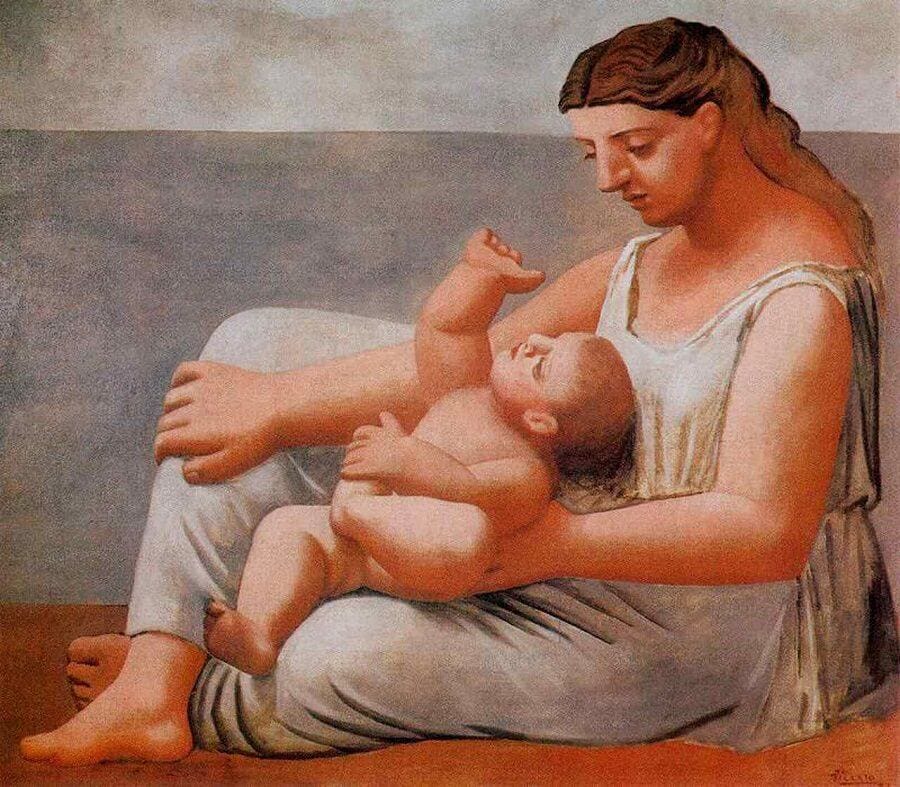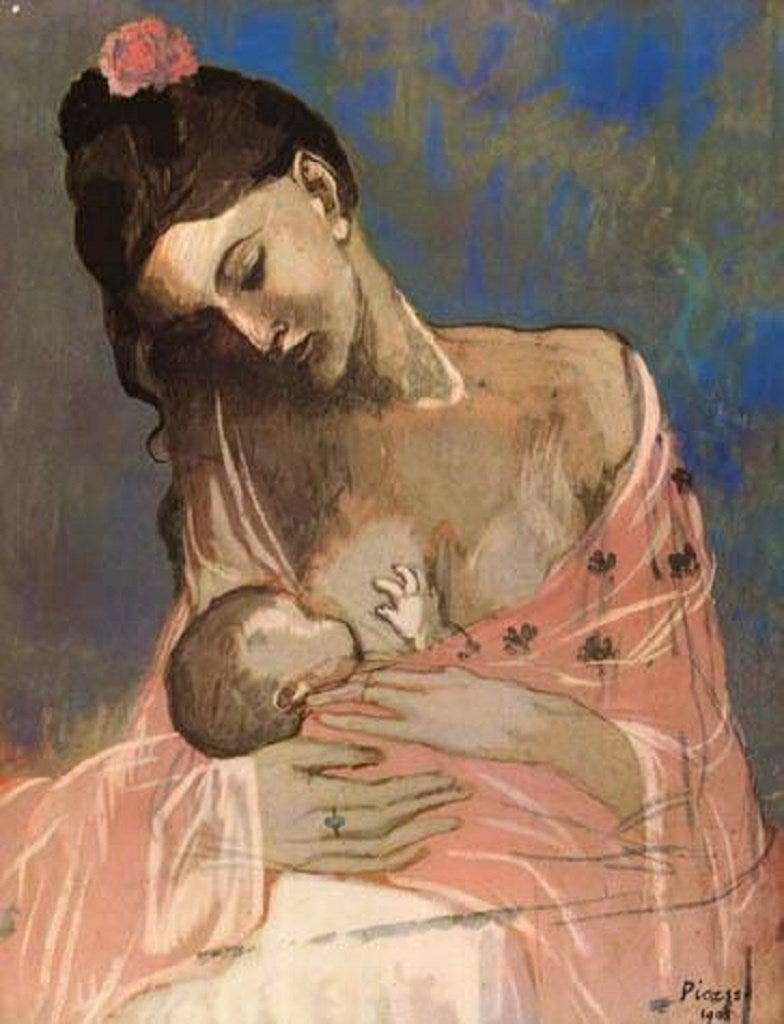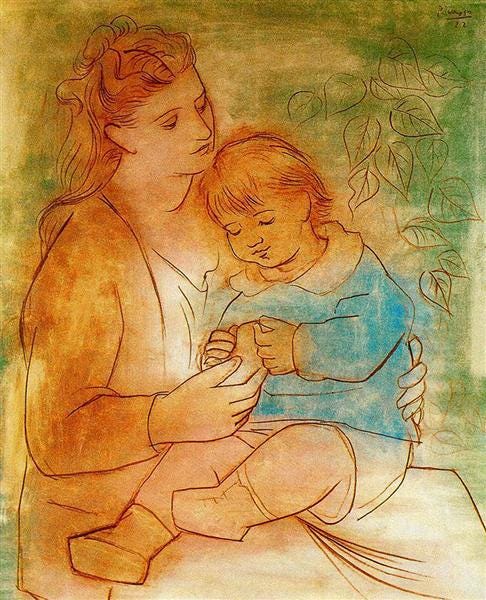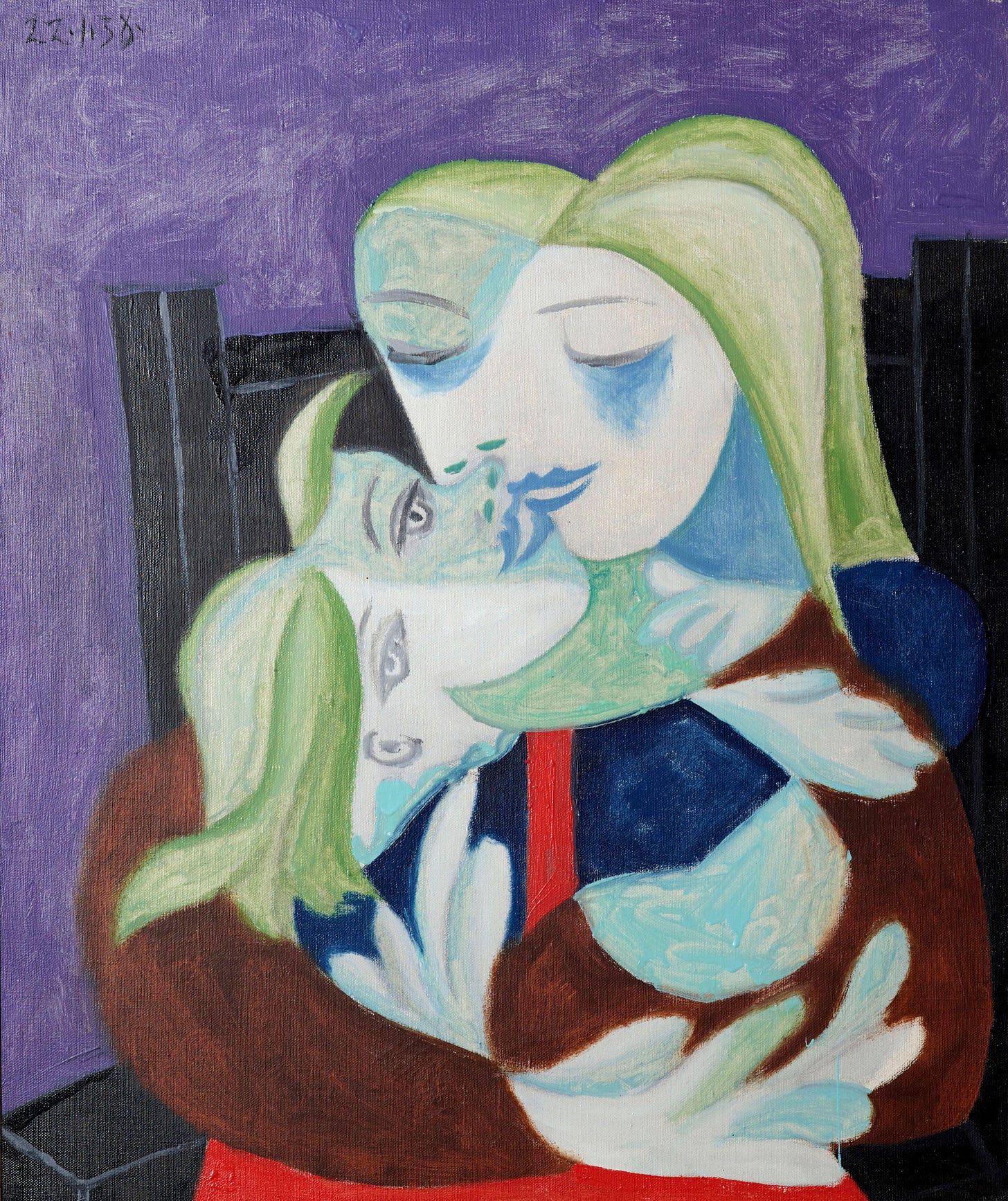A Witness At All Times
In standing as a witness, I am summoning God to the place where I am.
“Watch me, Mom! Watch me!”
“Look at me!”
“See what I’m doing!”
“Mom, are you watching?”
Am I watching? I try to. I want to. It seems important. Watching children attempt somersaults or couch dives may be one of the less celebrated aspects of parenthood, but it is clear to me that the need for a witness is somehow vital to a child’s world.
Yet, as a mother of six children, that constant need for my witnessing exhausts me. The acts I am called to witness can feel trivial. I’ve watched to see how still a child could be. (Nothing happened.) I’ve lent my eyes to a child trying over and over to hit a ball, each time ending with, “No, that wasn’t it. Watch again!” (I just about went over to hit the ball myself.) And recently, my attention was demanded so I could witness a little boy stuff a large forkful of chocolate cake into his mouth.
But as with other social and emotional developments of early childhood, I think this need for parental eyes may have more to do with teaching caregivers than it has to do with growing humans. For example, a baby’s sense of fairness manifests sometimes before language develops: suddenly she will notice her sibling gets a popsicle but she does not. A wail erupts, accompanied by the “boneless” reflex as she melts into a very noisy puddle.
Or, more tenderly, a toddler’s social sense draws him to a sad person. He may attempt a hug or insist that he gets to sit with the mournful one. Just sitting, quietly, patiently, watchfully.
Such childlike examples inspire and alert me to know how to better care for my family. But the need to be watched, seen, observed, and witnessed—again and again and again. What is that about?
As a child I did promise to be a witness—of God. I covenanted to stand as a witness at all times and in all things in all places. At the time, I imagined that there would be opportunities for me to literally stand up and talk about God. There have been, and there will be. But at all times? In all things? In all places?
I feel now, thirty years after making those promises, that I have been living below my potential as a witness. My awareness has not been honed and my reporting skills could be stronger.
Perhaps I could learn from the role of a courtroom witness—someone whose purpose is to share, honestly and fully, their observations without judgment. Or, bringing my professional journalistic training more fully into my personal life, I might develop my witnessing skills by asking questions, looking closely, noticing where something seems interesting, or strange, or wrong, or beautiful, with the intent to share what I see.
But it is, again, when I step into my role as a mother that I find the greatest clarity on how to proceed as I strive to become a witness. With my baby and toddler, I know to give them words to see the world they live in—the birds and trains, yes, but also the ways they are loved and can love others, the disappointments and joys of falling and getting back up.
My grade school kids need more context and color as they learn what is right and what is wrong and why it can sometimes be hard to tell the difference. I can witness to them of the complexity of the world, of the need to be open, humble, kind, and courageous as we walk and bike through our city on eye-level with teeming humanity, or as we parse classroom dramas from the comfort of our couch.
And with my teenagers, I can share the ways in which their generation can step forward to grapple with the problems they are inheriting with love and hope and determination. We can discuss together how we can bring a God-like perspective to our interactions and our endeavors.
Each child and each age gives me more opportunities to develop the shading and perspective in my own views, and to fill in gaps in my understanding. With their youthful, innocent eyes, I have often been able to see with wonder what had become mundane, or to notice where I had been blind to places I could beautify. My ability to witness grows as they grow.
In fact, I’ve noticed that right around the time that “Watch me!” becomes a mantra in the preschool set, so does the refrain, “I want to see!” As a caregiver this often has me down on my knees, looking from three-year-old level, or picking them up to see from mine, to point to a nest or a building or a balloon floating through the sky. I must guide their eyes to help them know what to look for, to know why it is special, to help them find it on their own.
I wonder, again, if this is an impulse that teaches caregivers as much as it does children. How many things have become new to me as I have seen them through my child’s eyes? How many wrongs have I noticed and beauties beheld because I was guiding a child’s gaze?
I have run the Boston Marathon twice, and the two races were very different for me, for an interesting reason. The first time I pinned my name to my shirt, and as I ran people cheered me by name . . . to the finish.
But the second year I forgot pins, so I wrote my name in marker on athletic tape and stuck it to my running singlet. By halfway through the race, my sweat had soaked through my clothes. The adhesive was no longer sticking and my name fell to the ground. I was no one. Those last miles were long, hard, and lonely.
Years later I find myself pondering that experience and seeing my own struggling self in strangers who cross my path. Does the mother yelling at her child on the subway train need someone to acknowledge her stress and offer support? What can I give to the young woman crouched and sobbing outside the basketball courts at the playground? A drink of water? A handful of pistachios? The knowledge that I see her and her pain? And what of the friend who is watching and waiting while a loved-one struggles through a terminal diagnosis. Is it enough to let her know that I, too, am watching with wonder and brimming with praise as she navigates the impossible path of grief, joy, trauma, hope, loneliness, and love all at once?
To that end, I suppose there is a part of me that is still uncertain about what it means to stand as a witness of Heavenly Parents. Am I their emissary? Reporting back to them what I see? Am I testifying to others how and when I see God in them and in the world? Am I saying what God would say and doing what God would do?
Yes. Yes, of course, to all of it, probably. Cole Arthur Riley writes, “I think when God bears witness to our lament, we discover that we are not calling out to a teacher but inviting God as a nurturer—a mother who hears her child crying in the night. She wakes, rises, and comes to the place where we lie.”
In standing as a witness, I am summoning God to the place where I am. Drawing them near by noticing the godly, and drawing the godly near by noticing the need.
I think back to my lonely, difficult race—how those who would cheer me on stand in the place of God, testifying of my own strength and beauty to me. How by witnessing my struggle they see the godly in me: overcoming weaknesses, persevering in spite of it, rising to challenges and transcending them.
God is in all things and in all places. Can I see them? Will I tell them so?
Riley also writes, “We need other people to see our own faces—to bear witness to their beauty and truth. God has made it so that I can never truly know myself apart from another person. I cannot trust myself to describe the curve of my nose because I’ve never seen it. I want someone to bear witness to my face, that we could behold the image of God in one another and believe it on one another’s behalf.”
I do not see myself accurately, but I can get a clearer picture as I talk with others—as we interact, as I feel their love for me and their hopes for my growth. Likewise, there are parts of the world and of life that I can’t see accurately because I am much too close to them. It helps to get another perspective to fill out the picture in all its complexity and depth.
My children, in their need to be seen, are saving up in me the witness they will need in the future. If I am paying attention, I will become that witness. I will be the one who knows how doggedly they tackled the challenge of crossing the monkey bars, or how they suffered through the first lonely weeks as a new kid at school but eventually found their place.
In their need to see, they are asking me to teach them what to look for and where. I can help them to find God in the broken and gritty subway just as well as a starry night sky. Together we can find God in each other—and in ourselves.
I’m watching, I’m looking, I’m trying to see.
Lizzie Heiselt grew up in Utah and attended Brigham Young University. Lizzie moved to New York in 2007 to attend graduate school, and earned her Master’s degree in Journalism from NYU in 2009. Lizzie is a wife, mom, sister, friend, and runner, among other things.
Art by Pablo Picasso.










Wow! A stirring call to witnessing beyond, buoyed by exquisite writing—thank you!